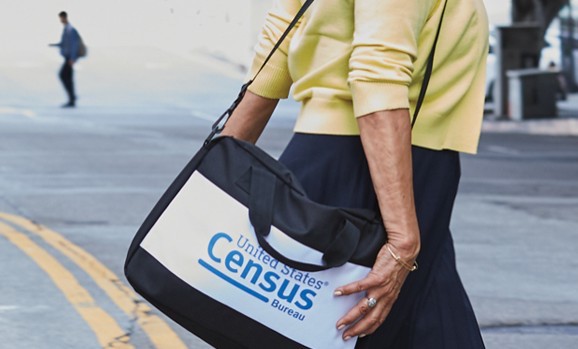
- Details
- By Native News Online Staff
WINDOW ROCK, Ariz. — The Navajo Nation joined a federal lawsuit on Tuesday against the U.S. Census Bureau and the Department of Commerce.
The lawsuit claims the agencies adopted an illegally expedited plan — known as the “Rush Plan” — that shortened the time allowed for people to complete the 2020 Census by imposing a new deadline of Sept. 30, 2020.
The shortened time frame will likely cause an undercount of Navajo citizens in the 2020 Census. That poses a threat to federal funds going into the Navajo Nation for the next decade because those funds are predicated on census numbers.
The lawsuit, which was filed on behalf of several city and county governments in the U.S. District Court for the Northern District of California, contends the federal government illegally curtailed time to complete the 2020 Census. Doing so, the lawsuit claims, threatens to cause a significant undercount of “hard-to-count” populations that include American Indians and Alaska Natives. The Gila River Indian Community also joined in the lawsuit against the Census and Commerce Dept.
The lawsuit was first filed on Aug. 18, shortly after the Trump administration suddenly and without explanation announced the “Rush Plan” on Aug. 3. The Rush Plan threatens to undercount “hard-to-count” populations, which are primarily minority communities including members of tribal nations.
“The Navajo Nation has worked proactively with the Census Bureau since last year to ensure that the Navajo Nation has a high response rate for the 2020 Census,” Navajo Nation President Jonathan Nez said in a statement. “Unfortunately, the federal government has undermined the time, planning, and resources that the Navajo Nation had dedicated to the Census count by shortening the time period by an entire month and now we are seeking a resolution through the courts.
“Many of our existing programs rely on federal funding, which is based on census data. Once again, the first people of this country are having to fight for what is right and just.”
The federal government’s implementation of the “Rush Plan” is especially detrimental in the midst of the COVID-19 pandemic, Nez said. The pandemic disrupted census operations across the United States.
The federal government originally responded to the disruption of the pandemic by creating a new census plan that pushed back census phase deadlines to provide more time to complete the census. This plan extended the time for data-collection to Oct. 31, 2020. However, on Aug. 3, 2020, the federal government reversed course with implementation of the “Rush Plan.”
The “Rush Plan” shortens the time for the non-response follow up phase, which involves census enumerators going door-to-door at residences that have not responded in previous phases. This phase is especially critical on the Navajo Nation. As of Wednesday, the Navajo Nation’s response rate for the 2020 Census was only 18.2 percent.
Nez and Vice President Myron Lizer recently signed a proclamation recognizing the month of September 2020 as “Navajo Nation Census Month,” to encourage the Navajo people to participate in the 2020 Census to ensure a complete count of all citizens on the Navajo Nation.
CLICK to self-respond to the 2020 Census or call 844-330-2020.
Related: Getting Past the Apathy and Fear of the Census
Related; Census Bureau Slashing a Month Off Counting is a Critical, Damaging Blow to Indian Country
More Stories Like This
50 Years of Self-Determination: How a Landmark Act Empowered Tribal Sovereignty and Transformed Federal-Tribal RelationsTunica-Biloxi Chairman Pierite Elected President as Tribal Nations Unite Behind New Economic Alliance
NCAI, NARF Host Session on Proposed Limits to Federal Water Protections
“Our Sovereignty Is Not Optional”: Tulalip Responds to ICE Actions
Denied Trip to Alcatraz, Leonard Peltier Tells Sunrise Gathering: “My Heart Is Full”
Help us defend tribal sovereignty.
At Native News Online, our mission is rooted in telling the stories that strengthen sovereignty and uplift Indigenous voices — not just at year’s end, but every single day.
Because of your generosity last year, we were able to keep our reporters on the ground in tribal communities, at national gatherings and in the halls of Congress — covering the issues that matter most to Indian Country: sovereignty, culture, education, health and economic opportunity.
That support sustained us through a tough year in 2025. Now, as we look to the year ahead, we need your help right now to ensure warrior journalism remains strong — reporting that defends tribal sovereignty, amplifies Native truth, and holds power accountable.
 The stakes couldn't be higher. Your support keeps Native voices heard, Native stories told and Native sovereignty defended.
The stakes couldn't be higher. Your support keeps Native voices heard, Native stories told and Native sovereignty defended.
Stand with Warrior Journalism today.
Levi Rickert (Potawatomi), Editor & Publisher

